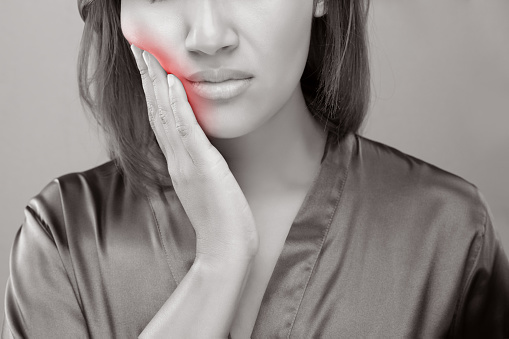When Sinuses Impact Tmj - What You Need to Know
Posted on 11/15/2024 by Kian Djawdan DMD |
 Have you ever experienced a throbbing pain in your jaw, face, or temples, along with earaches, headaches, and even dizziness? These could be symptoms of temporomandibular joint disorder, also known as TMJ. While TMJ itself isn't directly caused by sinus issues, there's a surprising connection between the two. Have you ever experienced a throbbing pain in your jaw, face, or temples, along with earaches, headaches, and even dizziness? These could be symptoms of temporomandibular joint disorder, also known as TMJ. While TMJ itself isn't directly caused by sinus issues, there's a surprising connection between the two.
The Trouble with Sinuses
Our sinuses are air-filled cavities located around our nose and cheekbones. When these cavities become inflamed due to allergies, infections, or other factors, they can put pressure on the temporomandibular joint, the hinge connecting your jawbone to your skull. This pressure can lead to pain, discomfort, and even limited jaw movement.
Symptoms to Watch Out For
Here are some common signs that your sinuses might be affecting your TMJ:
| • |
Facial pain and pressure: This pain can be located in your jaw, cheeks, temples, and even behind your eyes. |
| • |
Earaches: Sinus pressure can cause referred pain in the ears, making you feel like you have an ear infection. |
| • |
Headaches: Sinus headaches are often described as a dull, throbbing pain that can worsen with head movement. |
| • |
Dizziness: In some cases, sinus pressure can affect your balance and cause dizziness. |
| • |
Limited jaw movement: The inflammation and pressure from your sinuses can make it difficult to open and close your mouth fully. |
What You Can Do
If you suspect your sinuses are impacting your TMJ, here are some steps you can take:
| • |
See your doctor: They can diagnose the underlying cause of your sinus issues and recommend appropriate treatment, which might include medication, nasal sprays, or even surgery. |
| • |
Apply a warm compress: Placing a warm compress on your face can help relieve pain and pressure. |
| • |
Use saline nasal spray: This can help clear your sinuses and reduce inflammation. |
| • |
Stay hydrated: Drinking plenty of fluids can help thin mucus and improve sinus drainage. |
| • |
Manage stress: Stress can worsen TMJ symptoms, so finding healthy ways to manage stress, such as exercise or meditation, can be beneficial. |
Taking Care of Your Oral Health
While you address your sinus issues, maintaining good oral hygiene is crucial. Regular brushing, flossing, and dental checkups can help prevent further complications and ensure your overall oral health. Additionally, consider discussing restoration dentistry options with your dentist. Restoring missing teeth or correcting bite issues can contribute to improved jaw function and alleviate TMJ symptoms.
Remember, addressing both the sinus issue and your TMJ symptoms is key to finding relief and improving your quality of life. If you experience any of the symptoms mentioned above, don't hesitate to consult your doctor and dentist for personalized advice and treatment options.
|
|
